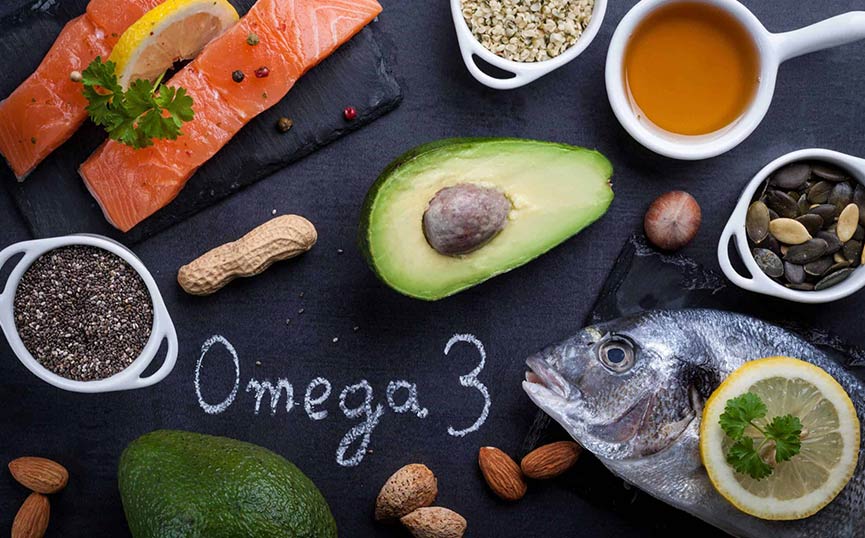Brain and memory support
Quoting Albert Szent Györgyi, the pioneer of nutritional supplements and the discoverer of polyphenols and vitamin C: "The human brain was designed by nature to recognize advantageous situations, to help people stay alive every day. The brain is the organ of survival.”.

We couldn't have put it better. The brain ultimately controls everything: our mood, blood flow, muscle function, excretion, detoxification and everything else. Some traits operate voluntarily, while others occur involuntarily, subconsciously.
Before we reveal the secret: what are the nutritional supplements that best stimulate brain function? Before that, I would like to show with an example what kind of power the brain can have.
Everyone knows the placebo: a drug without an active ingredient that we believe actually has a healing effect. So, once we've cleared that up, here's the story1: There lived a young man named John Doe (not his real name, of course) who struggled with deep depression. When he was at his lowest point, he saw an ad seeking volunteers to test a new antidepressant.
And John was happy to sign up for this: he didn't know whether he was getting a placebo or the active ingredient, and he didn't even think he could get a placebo. He started using it, and then during a low point he decided to end his life: he took all the test drugs. Then he felt sick, nauseated and fainted. His neighbors found him and in the hospital they found nothing but low blood pressure. But his symptoms did not go away: his speech was slurred, he was depressed - he looked like he was really going to die. But when they called the research institute who conducted the study, they said that John only received a placebo. Interestingly, all of John's problems were gone, his strength was suddenly back.
Do you see what our brain is capable of?! However, we can often feel that we are not in control of our own mind. Many times this is not even our fault, because the lack of a necessary nutrient or even increased inflammation can change our brain function. We want to help you with this now!
The most basic nutrients for our brain
Communication between nerve cells, i.e. signal transmission, is what makes the brain function. And the connections will be made by nervous system hormones - their special name: neurotransmitters.
Let's see what is needed for the right level of nervous system hormones:
- Omega 3:It is found in large quantities in the cells’ walls. It is necessary for the formation of the electrical properties of the cell wall (membrane). 2-5 And without electricity, there is no functioning of the nervous system. In addition, it is a very strong anti-inflammatory. 6,7 In the past, people consumed much, much more Omega 3. 8 There were not so many chronic patients. For this reason and for the health of our brain, feel free to use Omega 3, 2-4 capsules a day! 9
- Choline: also a part of the cell wall, and also a precursor of one of the most important brain hormones: acetylcholine. 10,11 Food supplements containing such choline: choline bitartrate and lecithin.
- B vitamins: due to their role in energy production, they (also) stimulate the functioning and development of nerve cells. Their absence can cause many nervous system problems. 12-14 Thus, they are of fundamental importance - they are called vitamins for a reason.
- Minerals: ions (that is, electrolytes) with a positive or negative charge are also needed for signal transmission in the nervous system - without them, the cell wall would not have electrical properties.15 With the lack of mineral intake, nerve conduction also slows down. This is why a lack of magnesium is associated with muscle spasms and why a lack of many minerals is associated with lethargy and fatigue.16
- Vitamins: vitamins A, C, D and E protect brain cells due to their antioxidant effects, and vitamins D3 and K2 are essential for the absorption of calcium. And calcium is essential for nervous system signal transmission. 16-20

The best brain stimulants: the secret recipe
Everyone wants to be able to concentrate more, to remember better what they have learned and to be able to pay attention to several things at the same time. In other words, let your brain spin like a merry-go-round in an amusement park. The good news is that many nutritional supplements and especially herbal extracts can stimulate brain function.
Here's the secret recipe:
- Taurine: taurine helps the supply of nutrients to nerve cells, has also protective properties for them and, contrary to belief, lowers blood pressure rather than increasing it. 21,22 Therefore, it does not have the same effect as caffeine. What's more: it even calms you down by stimulating the main inhibitory neurotransmitter (GABA).23 With taurine, continuous use is important, if we only use it before mentally demanding tasks, it will not lead to the same results as continuous use.
- Magnesium: low magnesium levels in the brain are related to reduced memory, because the cerebral cortex responsible for memory is highly magnesium dependent. Thus, magnesium is essential for brain stimulation.24
- Green tea extract: an antioxidant bomb that provides a super boost of energy, which not only provides mental performance, but also protects nerve cells.25-27 And the caffeine in it is used slowly, so it continuously supplies you with energy. Awesome day starter! Due to its caffeine content, we recommend decaffeinated green tea extract for people with high blood pressure.

Use intermittently (one at a time):
- Ashwagandha: believed by Indians to give the strength of horses. And now studies have shown that it can actually increase brain function, memory and concentration.28-31
- Gingko biloba: prescribed by doctors in some countries to treat dementia and mild cognitive impairment. It stimulates cerebral blood flow, so more nutrients can reach the brain. It also has mood-enhancing effects.32-35
- Rhodiola: an herb also used by the Vikings, which balances the level of stress hormones in such a way as to result in precise and efficient task-solving ability. Say goodbye to panic before complex tasks and say hello to unmatched memory and concentration!36-40
Based on these, the TOP 10 food supplements that both protect our nervous system and stimulate its functioning:
- DAILY VITS™ (100 TABLETS)
- OMEGA-3, MOLECULARLY DISTILLED (200 SOFTGELS)
- LECITHIN 1200 MG (100 SOFTGELS)
- STRESS FORMULA (60 CAPLETS)
- TAURINE POWDER (NATURAL) (300 G)
- MAGNESIUM CAPS 500 MG (100 VEG CAPSULES)
- SUPER STRENGTH EGCG 350 MG (120 CAPSULES)
- ASHWAGANDHA COMPLEX (60 CAPSULES) Contains added B vitamins.
- GINKGO BILOBA FORTE 120 MG (60 CAPSULES)
- RHODIOLA EXTRACT (60 CAPSULES)
Sources used:
1) R.R. Reeves et al., „Nocebo Effects with Antidepressant Clinical Drug Trial Placebos,” General Hospital Psychiatry, vol 29, no. 3: pp. 275-277 (2007)
2) Herbst EA, Paglialunga S, Gerling C, et al. Omega-3 supplementation alters mitochondrial membrane composition and respiration kinetics in human skeletal muscle. J Physiol. 2014;592(6):1341-1352.
3) Valentine RC, Valentine DL. Omega-3 fatty acids in cellular membranes: a unified concept. Prog Lipid Res. 2004 Sep;43(5):383-402.
4) Surette ME. The science behind dietary omega-3 fatty acids. CMAJ. 2008;178(2):177-180.
5) Valentine RC, Valentine DL. Omega-3 fatty acids in cellular membranes: a unified concept. Prog Lipid Res. 2004 Sep;43(5):383-402
6) Calder PC. Omega-3 fatty acids and inflammatory processes. Nutrients. 2010;2(3):355-374. doi:10.3390/nu2030355
7) Mori TA, Beilin LJ. Omega-3 fatty acids and inflammation. Curr Atheroscler Rep. 2004 Nov;6(6):461-7
8) Simopoulos AP, DiNicolantonio JJ. The importance of a balanced ω-6 to ω-3 ratio in the prevention and management of obesity. Open Heart. 2016;3(2):e000385. Published 2016 Sep 20.
9) https://www.efsa.europa.eu/en/press/news/120727?fbclid=IwAR1UGhr0Hbw4omP8drBiyGJyS_u2Tgnqj4S89tKboJmbrLjk0uds_CuGeMA
10) Rada PV, Mark GP, Hoebel BG. Effects of supplemental choline on extracellular acetylcholine in the nucleus accumbens during normal behavior and pharmacological acetylcholine depletion. Synapse. 1994 Mar;16(3):211-8.
11) Tabassum S, Haider S, Ahmad S, Madiha S, Parveen T. Chronic choline supplementation improves cognitive and motor performance via modulating oxidative and neurochemical status in rats. Pharmacol Biochem Behav. 2017 Aug;159:90-99
12) Calderón-Ospina CA, Nava-Mesa MO. B Vitamins in the nervous system: Current knowledge of the biochemical modes of action and synergies of thiamine, pyridoxine, and cobalamin. CNS Neurosci Ther. 2020;26(1):5-13.
13) Reynolds E. Vitamin B12, folic acid, and the nervous system. Lancet Neurol. 2006 Nov;5(11):949-60.
14) Kennedy DO. B Vitamins and the Brain: Mechanisms, Dose and Efficacy--A Review. Nutrients. 2016;8(2):68. Published 2016 Jan 27.
15) Shrimanker I, Bhattarai S. Electrolytes. 2021 Jul 26. In: StatPearls [Internet]. Treasure Island (FL): StatPearls Publishing; 2022 Jan–. PMID: 31082167.
16) Tardy AL, Pouteau E, Marquez D, Yilmaz C, Scholey A. Vitamins and Minerals for Energy, Fatigue and Cognition: A Narrative Review of the Biochemical and Clinical Evidence. Nutrients. 2020;12(1):228. Published 2020 Jan 16.
17) Kamat CD, Gadal S, Mhatre M, Williamson KS, Pye QN, Hensley K. Antioxidants in central nervous system diseases: preclinical promise and translational challenges. J Alzheimers Dis. 2008;15(3):473-493. doi:10.3233/jad-2008-15314
18) Vatassery GT. Vitamin E and other endogenous antioxidants in the central nervous system. Geriatrics. 1998 Sep;53 Suppl 1:S25-7. PMID: 9745632.
19) Maresz K. Growing Evidence of a Proven Mechanism Shows Vitamin K2 Can Impact Health Conditions Beyond Bone and Cardiovascular. Integr Med (Encinitas). 2021;20(4):34-38.
20) Wrzosek M, Łukaszkiewicz J, Wrzosek M, Jakubczyk A, Matsumoto H, Piątkiewicz P, Radziwoń-Zaleska M, Wojnar M, Nowicka G. Vitamin D and the central nervous system. Pharmacol Rep. 2013;65(2):271-8. doi: 10.1016/s1734-1140(13)71003-x. PMID: 23744412.
21) Wu JY, Prentice H. Role of taurine in the central nervous system. J Biomed Sci. 2010 Aug 24;17 Suppl 1(Suppl 1):S1. doi: 10.1186/1423-0127-17-S1-S1. PMID: 20804583; PMCID: PMC2994408.
22) Sun Q, Wang B, Li Y, Sun F, Li P, Xia W, Zhou X, Li Q, Wang X, Chen J, Zeng X, Zhao Z, He H, Liu D, Zhu Z. Taurine Supplementation Lowers Blood Pressure and Improves Vascular Function in Prehypertension: Randomized, Double-Blind, Placebo-Controlled Study. Hypertension. 2016 Mar;67(3):541-9.
23) Ochoa-de la Paz L, Zenteno E, Gulias-Cañizo R, Quiroz-Mercado H. Taurine and GABA neurotransmitter receptors, a relationship with therapeutic potential? Expert Rev Neurother. 2019 Apr;19(4):289-291. doi: 10.1080/14737175.2019.1593827. Epub 2019 Mar 20. PMID: 30892104.
24) Slutsky I, Abumaria N, Wu LJ, Huang C, Zhang L, Li B, Zhao X, Govindarajan A, Zhao MG, Zhuo M, Tonegawa S, Liu G. Enhancement of learning and memory by elevating brain magnesium. Neuron. 2010 Jan 28;65(2):165-77.
25) Pervin M, Unno K, Takagaki A, Isemura M, Nakamura Y. Function of Green Tea Catechins in the Brain: Epigallocatechin Gallate and its Metabolites. Int J Mol Sci. 2019;20(15):3630. Published 2019 Jul 25.
26) Mancini E, Beglinger C, Drewe J, Zanchi D, Lang UE, Borgwardt S. Green tea effects on cognition, mood and human brain function: A systematic review. Phytomedicine. 2017 Oct 15;34:26-37.
27) Dietz C, Dekker M. Effect of Green Tea Phytochemicals on Mood and Cognition. Curr Pharm Des. 2017;23(19):2876-2905.
28) Efficacy and safety of Ashwagandha (Withania somnifera (L.) Dunal) root extract in improving memory and cognitive functions. Choudhary D, Bhattacharyya S, Bose S. J Dietary Supplements. 2017;14:599–612.
29) Kritikar KR, Basu BD. Withania somnifera, Indian medicinal plants. 2nd Edition. IIIrd. Lalit Mohan Basu, Allahabad; 1935. pp. 1774–1776.
30) Singh RS. Ashwagandha, Vanaushadhi Nidharsika (Ayurvedic Pharmacopia) UP Sansthan: 1983. pp. 30–31
31) Singh N. Herbs - The Life of Man, Need Pharmaco-clinical Studies for their Scientific Validation - Relevance of Modern Methods of Pharmacological Studies to Traditional Medicine. Lucknow: Department of Pharmacology & Therapeutics, C.S.M. Medical University, Scientific Convention Centre; 2008. pp. 37–43
32) DeKosky ST, Williamson JD, Fitzpatrick AL, Kronmal RA, Ives DG, Saxton JA, Lopez OL, Burke G, Carlson MC, Fried LP, Kuller LH, Robbins JA, Tracy RP, Wollard NF, Dunn L, Snitz BE, Nahin RL, Furberg CD for the Ginkgo Evaluation of Memory Study Investigators. Ginkgo biloba for prevention of dementia. A randomized controlled trial. JAMA. 2008;300:2253–2262.
33) Le Bars PL. Magnitude of effect and special approach to Ginkgo biloba extract EGb761 in cognitive disorders. Pharmacopsychiatry. 2003;36:S44–S49.
34) Ahlemeyer B, Krieglstein J. Neuroprotective effects of Ginkgo biloba extract. Cell Mol Life Sci. 2003;60:1779–1792.
35) Christen Y. Ginkgo biloba and neurodegenerative disorders. Front Biosci. 2004;9:3091–3104.
36) Li Y, Pham V, Bui M, et al. Rhodiola rosea L.: an herb with anti-stress, anti-aging, and immunostimulating properties for cancer chemoprevention. Curr Pharmacol Rep. 2017;3(6):384-395.
37) Si PP, Zhen JL, Cai YL, Wang WJ, Wang WP. Salidroside protects against kainic acid-induced status epilepticus via suppressing oxidative stress. Neurosci Lett. 2016;618:19–24.
38) Zhang J, Zhen YF, Pu-Bu-Ci-Ren, Song LG, Kong WN, Shao TM, Li X, Chai XQ. Salidroside attenuates beta amyloid-induced cognitive deficits via modulating oxidative stress and inflammatory mediators in rat hippocampus. Behav Brain Res. 2013;244:70–81.
39) Bystritsky A, Kerwin L, Feusner JD. A pilot study of Rhodiola rosea (Rhodax) for generalized anxiety disorder (GAD). J Altern Complement Med. 2008 Mar;14(2):175-80.
40) Jówko E, Sadowski J, Długołęcka B, Gierczuk D, Opaszowski B, Cieśliński I. Effects of Rhodiola rosea supplementation on mental performance, physical capacity, and oxidative stress biomarkers in healthy men. J Sport Health Sci. 2018;7(4):473-480. doi:10.1016/j.jshs.2016.05.005

